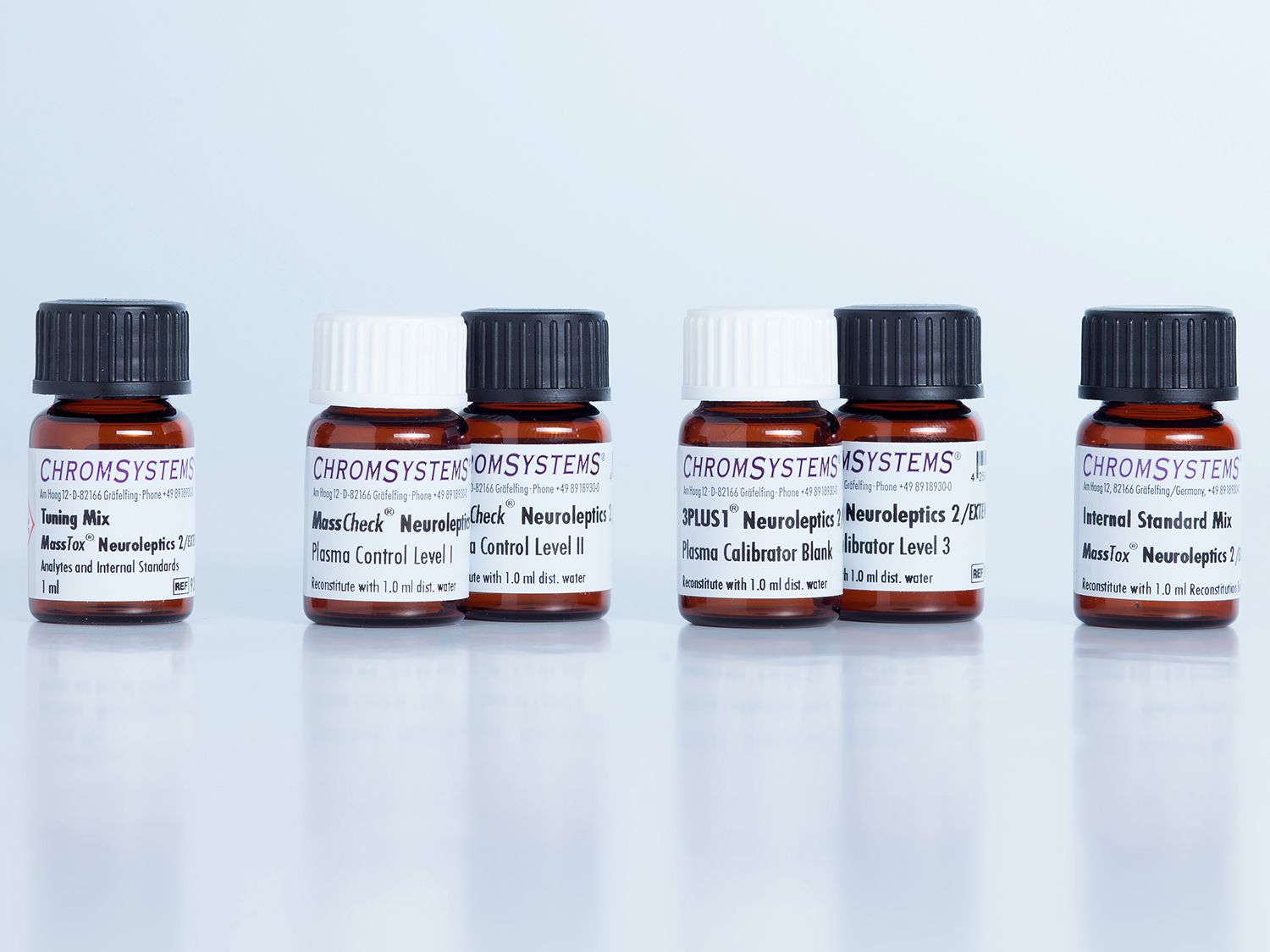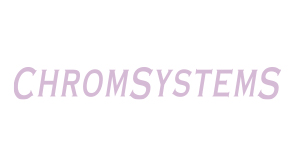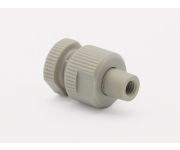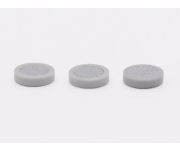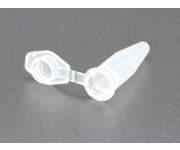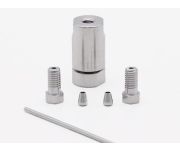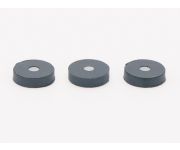Parameter Set Neuroleptics 2/EXTENDED 2 for automated sample preparation on Chromsystems MassSTAR
CE-IVD compliant automation on Chromsystems MassSTAR
Parameter menu of 28 analytes
3PLUS1® Multilevel Calibrator Set and MassCheck® controls
Part of the continuously extended MassTox® TDM Series A
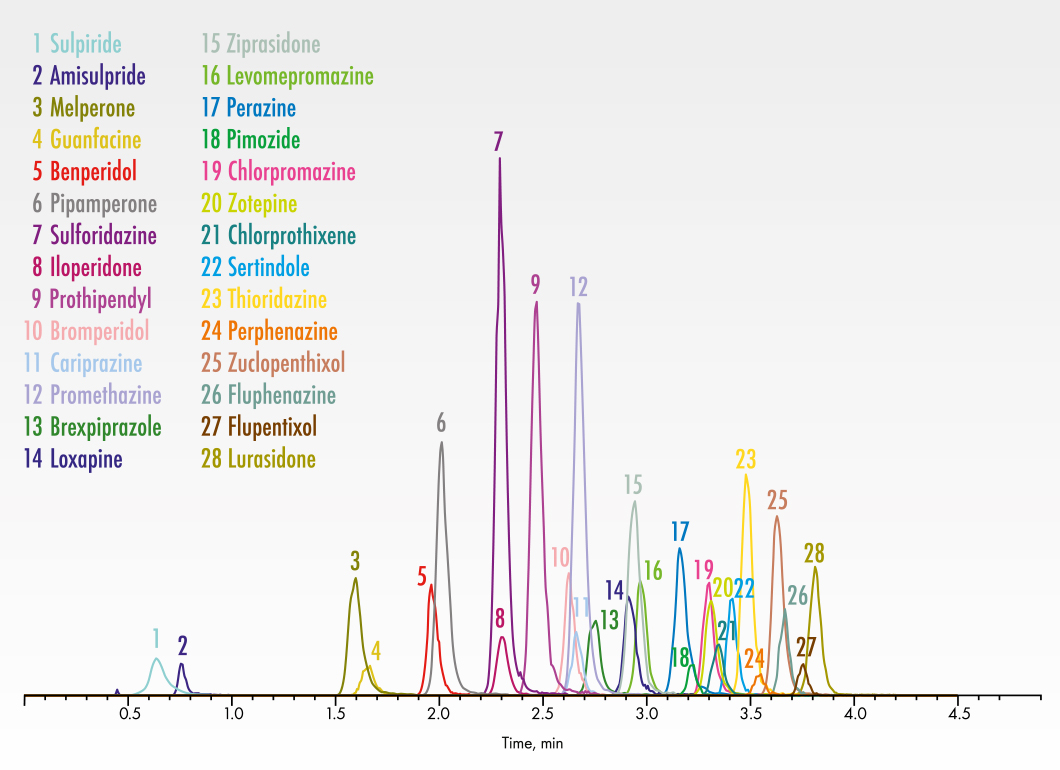

Amisulpride
Benperidol
Brexpiprazole
Bromperidol
Cariprazine
Chlorpromazine
Chlorprothixene
Flupentixol
Fluphenazine
Guanfacine
Iloperidone
Levomepromazine
Loxapine
Lurasidone
Melperone
Perazine
Perphenazine
Pimozide
Pipamperone
Promethazine
Prothipendyl
Sertindole
Sulforidazine
Sulpiride
Thioridazine
Ziprasidone
Zotepine
Zuclopenthixol
Clinical relevance
Neuroleptics are a class of drugs with antipsychotic effects. They counteract hallucinations and delusions, and are primarily used in the treatment of schizophrenia. Their mechanism of action is attributed to their effects on synaptic impulse transmission in the central nervous system. When neuroleptics bind to specific receptors for neurotransmitters (notably dopamine), they prevent impulse transfer and thus inhibit signal transduction.
A key issue in treatment with antipsychotics is finding the right dose, a difficult and potentially time-consuming process because of significant interindividual differences. A lack of response may be pharmacokinetic or pharmacodynamic in origin. Inadequate patient compliance is another factor that may compromise response to treatment.
Studies have demonstrated for some psychoactive drugs that therapeutic drug monitoring improves the likelihood of response to treatment and may help to prevent side effects. This has a positive impact on patient compliance and also has cost-saving potential.
Blood level monitoring is indicated in psychiatry if for instance a medicine is being taken for the first time or dosage adjustment is necessary; if it is suspected that the patient is not taking the drug properly or at all; if adverse reactions occur; if the patient is not responding to treatment; if drug interactions are likely, or if special populations are involved (under 18 or over 65 years of age, patients with learning difficulties, special metabolic circumstances).
In addition to a number of important neuroleptics, this kit can also be used to determine guanfacine, a centrally active alpha-2 receptor agonist. Guanfacine is used in the treatment of attention deficit hyperactivity disorder (ADHD) in patients who are unable to use central stimulants. Since overdosing can cause serious poisoning, patient monitoring is crucial.
To avoid interferences and enable a clear analysis, the neuroleptics were divided into two Parameter Sets, Neuroleptics 1/EXTENDED and Neuroleptics 2/EXTENDED 2.
MassTox® TDM Series A
The MassTox® TDM Series A is a modular system that enables the determination of 200 analytes without changing column or mobile phases, thereby minimising the workload in the laboratory.
It consists of 3 parts:
• MassTox® TDM Basic Kit A
• Specific MassTox® TDM Parameter Set (13 different parameter sets available)
• Analytical column MassTox® TDM MasterColumn® A
![]() More information about MassTox® TDM Series A
More information about MassTox® TDM Series A
MassSTAR
For this parameter set Chromsystems offers a CE-IVD compliant workflow method using the MassSTAR to automate the sample preparation.
![]() More information about MassSTAR
More information about MassSTAR
Detailed performance evaluation data can be found in the appendices of the instruction manual.
| Method of Analysis | LC-MS/MS |
|---|---|
| Please note | The information listed here, including the sample preparation, is not sufficient for using the product. Please read the information provided in the instruction manual, which includes detailed information on limitations associated with the use of the product in line with its intended purpose. Detailed performance evaluation data can be found in the appendices of the instruction manual. |
| Lower Limit of Quantitation | 0.1 – 29.0 µg/l |
| Upper Limit of Quantification | 24 – 2500 µg/l |
| Specimen | Serum/Plasma |
| Sample Preparation | The information on the sample preparation presented here is not sufficient for use in the laboratory. For a detailed step by step description, please refer to the instruction manual. Automated Sample Preparation * Ready to use automation routine provided with the installation by Chromsystems. |
| Run Time | 5 min |
| Injection Volume | 0.2 – 50 µl |
| Ionisation | ESI positive |
| MS/MS Mode | MRM |
| Parameters | Amisulpride, Benperidol, Brexpiprazole, Bromperidol, Cariprazine, Chlorpromazine, Chlorprothixene, Flupentixol, Fluphenazine, Guanfacine, Iloperidone, Levomepromazine, Loxapine, Lurasidone, Melperone, Perazine, Perphenazine, Pimozide, Pipamperone, Promethazine, Prothipendyl, Sertindole, Sulforidazine, Sulpiride, Thioridazine, Ziprasidone, Zotepine, Zuclopenthixol |
-
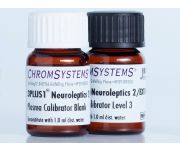 3PLUS1® Multilevel Plasma Calibrator Set Neuroleptics 2/ EXTENDED 2Order no.: 92026/XT2MassTox® TDM Series A Neuroleptics 2/EXTENDED 2 in Serum/Plasma – LC-MS/MS
3PLUS1® Multilevel Plasma Calibrator Set Neuroleptics 2/ EXTENDED 2Order no.: 92026/XT2MassTox® TDM Series A Neuroleptics 2/EXTENDED 2 in Serum/Plasma – LC-MS/MS -
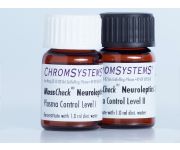 MassCheck® Neuroleptics 2/EXTENDED 2 Plasma ControlsOrder no.: 0227/XT2; 0228/XT2; 0229/XT2MassTox® TDM Series A Neuroleptics 2/EXTENDED 2 in Serum/Plasma – LC-MS/MS
MassCheck® Neuroleptics 2/EXTENDED 2 Plasma ControlsOrder no.: 0227/XT2; 0228/XT2; 0229/XT2MassTox® TDM Series A Neuroleptics 2/EXTENDED 2 in Serum/Plasma – LC-MS/MS -
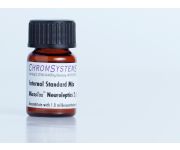 Internal Standard Set Neuroleptics 2/EXTENDED 2Order no.: 92046/N2/XT2
Internal Standard Set Neuroleptics 2/EXTENDED 2Order no.: 92046/N2/XT2Component of the Parameter Set Neuroleptics 2/EXTENDED 2, available separately
-
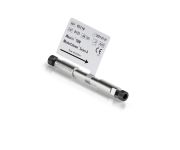 MassTox® TDM MasterColumn® AOrder no.: 92110
MassTox® TDM MasterColumn® AOrder no.: 92110Analytical column for MassTox® TDM Series A - LC-MS/MS
-
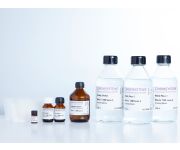 Basic Kit A for automated sample preparation on Chromsystems MassSTAROrder no.: 92711
Basic Kit A for automated sample preparation on Chromsystems MassSTAROrder no.: 92711CE-IVD compliant automation on Chromsystems MassSTAR
Part of the MassTox® TDM Series A
Modular system for therapeutic drug monitoring
Provides all components required for sample prep and all mobile phases -
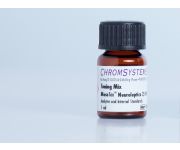 Tuning Mix Neuroleptics 2/EXTENDED 2Order no.: 92017/XT2Tuning Mix for the Parameter Set Neuroleptics 2/EXTENDED 2 - LC-MS/MS
Tuning Mix Neuroleptics 2/EXTENDED 2Order no.: 92017/XT2Tuning Mix for the Parameter Set Neuroleptics 2/EXTENDED 2 - LC-MS/MS
-
 3PLUS1® Multilevel Plasma Calibrator Set Neuroleptics 2/ EXTENDED 2Order no.: 92026/XT2MassTox® TDM Series A Neuroleptics 2/EXTENDED 2 in Serum/Plasma – LC-MS/MS
3PLUS1® Multilevel Plasma Calibrator Set Neuroleptics 2/ EXTENDED 2Order no.: 92026/XT2MassTox® TDM Series A Neuroleptics 2/EXTENDED 2 in Serum/Plasma – LC-MS/MS
-
 MassCheck® Neuroleptics 2/EXTENDED 2 Plasma ControlsOrder no.: 0227/XT2; 0228/XT2; 0229/XT2MassTox® TDM Series A Neuroleptics 2/EXTENDED 2 in Serum/Plasma – LC-MS/MS
MassCheck® Neuroleptics 2/EXTENDED 2 Plasma ControlsOrder no.: 0227/XT2; 0228/XT2; 0229/XT2MassTox® TDM Series A Neuroleptics 2/EXTENDED 2 in Serum/Plasma – LC-MS/MS


Amisulpride
Benperidol
Brexpiprazole
Bromperidol
Cariprazine
Chlorpromazine
Chlorprothixene
Flupentixol
Fluphenazine
Guanfacine
Iloperidone
Levomepromazine
Loxapine
Lurasidone
Melperone
Perazine
Perphenazine
Pimozide
Pipamperone
Promethazine
Prothipendyl
Sertindole
Sulforidazine
Sulpiride
Thioridazine
Ziprasidone
Zotepine
Zuclopenthixol
Clinical relevance
Neuroleptics are a class of drugs with antipsychotic effects. They counteract hallucinations and delusions, and are primarily used in the treatment of schizophrenia. Their mechanism of action is attributed to their effects on synaptic impulse transmission in the central nervous system. When neuroleptics bind to specific receptors for neurotransmitters (notably dopamine), they prevent impulse transfer and thus inhibit signal transduction.
A key issue in treatment with antipsychotics is finding the right dose, a difficult and potentially time-consuming process because of significant interindividual differences. A lack of response may be pharmacokinetic or pharmacodynamic in origin. Inadequate patient compliance is another factor that may compromise response to treatment.
Studies have demonstrated for some psychoactive drugs that therapeutic drug monitoring improves the likelihood of response to treatment and may help to prevent side effects. This has a positive impact on patient compliance and also has cost-saving potential.
Blood level monitoring is indicated in psychiatry if for instance a medicine is being taken for the first time or dosage adjustment is necessary; if it is suspected that the patient is not taking the drug properly or at all; if adverse reactions occur; if the patient is not responding to treatment; if drug interactions are likely, or if special populations are involved (under 18 or over 65 years of age, patients with learning difficulties, special metabolic circumstances).
In addition to a number of important neuroleptics, this kit can also be used to determine guanfacine, a centrally active alpha-2 receptor agonist. Guanfacine is used in the treatment of attention deficit hyperactivity disorder (ADHD) in patients who are unable to use central stimulants. Since overdosing can cause serious poisoning, patient monitoring is crucial.
To avoid interferences and enable a clear analysis, the neuroleptics were divided into two Parameter Sets, Neuroleptics 1/EXTENDED and Neuroleptics 2/EXTENDED 2.
MassTox® TDM Series A
The MassTox® TDM Series A is a modular system that enables the determination of 200 analytes without changing column or mobile phases, thereby minimising the workload in the laboratory.
It consists of 3 parts:
• MassTox® TDM Basic Kit A
• Specific MassTox® TDM Parameter Set (13 different parameter sets available)
• Analytical column MassTox® TDM MasterColumn® A
![]() More information about MassTox® TDM Series A
More information about MassTox® TDM Series A
MassSTAR
For this parameter set Chromsystems offers a CE-IVD compliant workflow method using the MassSTAR to automate the sample preparation.
![]() More information about MassSTAR
More information about MassSTAR
Detailed performance evaluation data can be found in the appendices of the instruction manual.
| Method of Analysis | LC-MS/MS |
|---|---|
| Please note | The information listed here, including the sample preparation, is not sufficient for using the product. Please read the information provided in the instruction manual, which includes detailed information on limitations associated with the use of the product in line with its intended purpose. Detailed performance evaluation data can be found in the appendices of the instruction manual. |
| Lower Limit of Quantitation | 0.1 – 29.0 µg/l |
| Upper Limit of Quantification | 24 – 2500 µg/l |
| Specimen | Serum/Plasma |
| Sample Preparation | The information on the sample preparation presented here is not sufficient for use in the laboratory. For a detailed step by step description, please refer to the instruction manual. Automated Sample Preparation * Ready to use automation routine provided with the installation by Chromsystems. |
| Run Time | 5 min |
| Injection Volume | 0.2 – 50 µl |
| Ionisation | ESI positive |
| MS/MS Mode | MRM |
| Parameters | Amisulpride, Benperidol, Brexpiprazole, Bromperidol, Cariprazine, Chlorpromazine, Chlorprothixene, Flupentixol, Fluphenazine, Guanfacine, Iloperidone, Levomepromazine, Loxapine, Lurasidone, Melperone, Perazine, Perphenazine, Pimozide, Pipamperone, Promethazine, Prothipendyl, Sertindole, Sulforidazine, Sulpiride, Thioridazine, Ziprasidone, Zotepine, Zuclopenthixol |
-
 3PLUS1® Multilevel Plasma Calibrator Set Neuroleptics 2/ EXTENDED 2Order no.: 92026/XT2MassTox® TDM Series A Neuroleptics 2/EXTENDED 2 in Serum/Plasma – LC-MS/MS
3PLUS1® Multilevel Plasma Calibrator Set Neuroleptics 2/ EXTENDED 2Order no.: 92026/XT2MassTox® TDM Series A Neuroleptics 2/EXTENDED 2 in Serum/Plasma – LC-MS/MS -
 MassCheck® Neuroleptics 2/EXTENDED 2 Plasma ControlsOrder no.: 0227/XT2; 0228/XT2; 0229/XT2MassTox® TDM Series A Neuroleptics 2/EXTENDED 2 in Serum/Plasma – LC-MS/MS
MassCheck® Neuroleptics 2/EXTENDED 2 Plasma ControlsOrder no.: 0227/XT2; 0228/XT2; 0229/XT2MassTox® TDM Series A Neuroleptics 2/EXTENDED 2 in Serum/Plasma – LC-MS/MS -
 Internal Standard Set Neuroleptics 2/EXTENDED 2Order no.: 92046/N2/XT2
Internal Standard Set Neuroleptics 2/EXTENDED 2Order no.: 92046/N2/XT2Component of the Parameter Set Neuroleptics 2/EXTENDED 2, available separately
-
 MassTox® TDM MasterColumn® AOrder no.: 92110
MassTox® TDM MasterColumn® AOrder no.: 92110Analytical column for MassTox® TDM Series A - LC-MS/MS
-
 Basic Kit A for automated sample preparation on Chromsystems MassSTAROrder no.: 92711
Basic Kit A for automated sample preparation on Chromsystems MassSTAROrder no.: 92711CE-IVD compliant automation on Chromsystems MassSTAR
Part of the MassTox® TDM Series A
Modular system for therapeutic drug monitoring
Provides all components required for sample prep and all mobile phases -
 Tuning Mix Neuroleptics 2/EXTENDED 2Order no.: 92017/XT2Tuning Mix for the Parameter Set Neuroleptics 2/EXTENDED 2 - LC-MS/MS
Tuning Mix Neuroleptics 2/EXTENDED 2Order no.: 92017/XT2Tuning Mix for the Parameter Set Neuroleptics 2/EXTENDED 2 - LC-MS/MS
-
 3PLUS1® Multilevel Plasma Calibrator Set Neuroleptics 2/ EXTENDED 2Order no.: 92026/XT2MassTox® TDM Series A Neuroleptics 2/EXTENDED 2 in Serum/Plasma – LC-MS/MS
3PLUS1® Multilevel Plasma Calibrator Set Neuroleptics 2/ EXTENDED 2Order no.: 92026/XT2MassTox® TDM Series A Neuroleptics 2/EXTENDED 2 in Serum/Plasma – LC-MS/MS
-
 MassCheck® Neuroleptics 2/EXTENDED 2 Plasma ControlsOrder no.: 0227/XT2; 0228/XT2; 0229/XT2MassTox® TDM Series A Neuroleptics 2/EXTENDED 2 in Serum/Plasma – LC-MS/MS
MassCheck® Neuroleptics 2/EXTENDED 2 Plasma ControlsOrder no.: 0227/XT2; 0228/XT2; 0229/XT2MassTox® TDM Series A Neuroleptics 2/EXTENDED 2 in Serum/Plasma – LC-MS/MS

